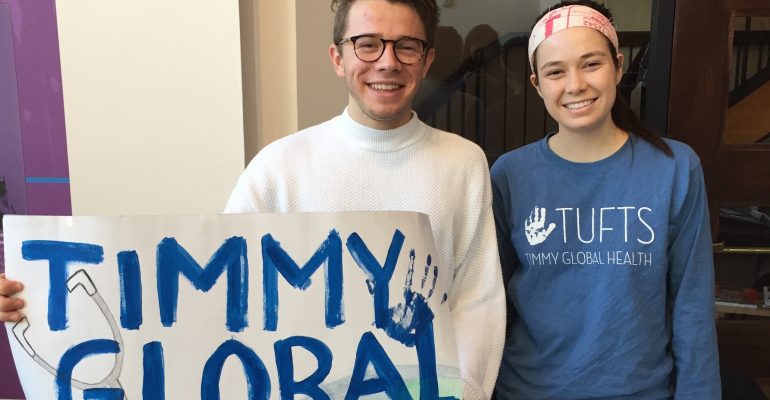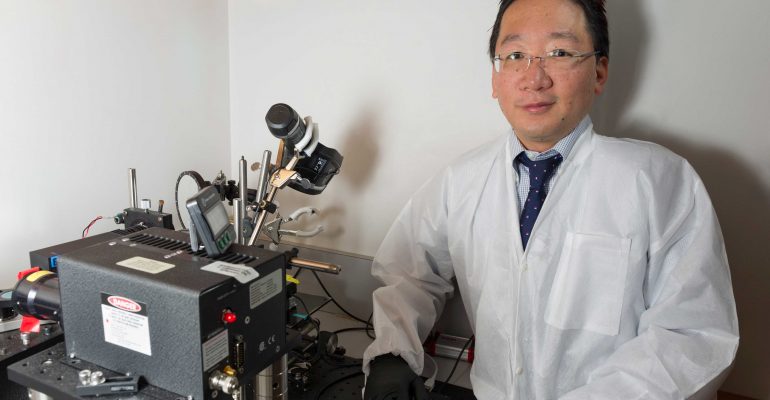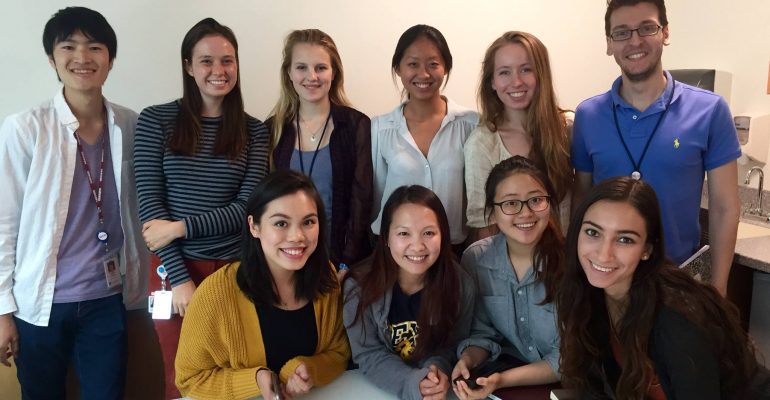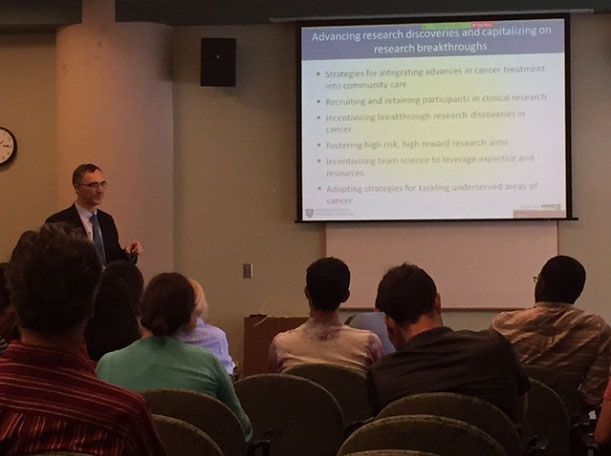On November 29th Dr. Mark Poznansky spoke to a group of Tufts University students about emerging infectious disease, global health and the Vaccine and Immunotherapy Center’s (VIC) contributions to vaccine development. The event, organized by Chloe Boehm, a VIC intern, on behalf of Tufts Timmy Global Health, a group dedicated to alleviating health disparities through their work in Guatemala and in the greater Boston area, brought together a diverse group of Tufts students, largely representing the community health and biology departments.
The interdisciplinary nature of the event led to a discussion of larger topics within global health, including the effect of climate change on emerging infectious disease and the increasing range of Aedis aegypti mosquito, an important vector in the spread of Dengue and Zika.
As Dr. Poznansky delineated VIC’s innovative VaxCelerate program, many students were impressed with the coordination and collaborative nature of VIC’s rapid vaccine development initiative. Second year undergraduate Evan Cook remarked, “Giving up personal victory is essential when trying to effectively and efficiently find therapies to aid the general public.” Indeed, the VaxCelerate model relies on ‘team science’ and interdisciplinary collaboration to develop vaccines within a drastically reduced time frame. The exciting concept of providing ‘vaccines on demand’ also shows VIC’s commitment to embracing novel technologies for research. A discussion of the progression of immunological research, from the development of FACS to the more recent CyTOF, cemented VIC as a pioneer in the early adoption of biomedical technologies.
The translational approach to research and development employed by VIC occupies a unique niche, one that has resulted in the development of clinically relevant therapies and vaccines. This lesson of collaboration and coordination is integral to the development of young scientists and health professionals, and will continue to guide translational research for years to come.














